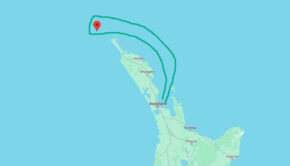Guidelines for the use of social media by ISAF Race Officials
Published on February 19th, 2014
Effective as of February 17, 2014, ISAF now has in place guidelines for the use of social media by ISAF Race Officials. Here they are….
1. GENERAL
1.1 – With the increasing use of new communication tools on the web such as blogs, social networks, call and text message services, it is necessary for ISAF Race Officials to consider how their own use of such tools interacts with their role as an official.
1.2 – Restricting the use of social media is not designed to inhibit freedom of speech or rights to privacy, but it is inevitable that appointment as a race official means the official must limit their use of such tools in order to comply with their duties as an official.
1.3 – ISAF’s goal is to provide guidelines to help race officials balance these concepts in order to avoid potentially embarrassing situations for the race official and for ISAF. The Race Officials Committee has appointed a Social Media Working Party to advise on this area.
2. CONFIDENTIALITY
2.1 – Most race official discussions and conversations (whether in the hearing room or out on the committee boat) are confidential. This is important so that officials can be frank and honest with each other. There is no time limit on confidentiality – it lasts forever.
2.2 – A competitor can say to the media that a decision is bad, the call was wrong, the race committee or the measurer made a mistake etc. But, except in authorised circumstances, a race official must not disclose confidential information. In particular:
(a) Except the official facts found, conclusion and decision, a judge serving on a panel should not disclose any other information about the hearing or the panel’s discussions.
(b) A member of the race management team should not disclose any information about the reasons for race committee decisions or the discussions within the race management team outside the official and agreed channel for communicating with third parties.
(c) On an umpire boat, apart from the official debriefing of a call e.g. “We saw this and we decide to green flag because we disagreed”, no other information about the umpires’ discussion should be disclosed.
(d) Disclosing confidential information about measurement procedures is prohibited.
2.3 – These Guidelines are not intended to stop constructive conversations between competitors and race officials. Social media is a positive way to deliver non-confidential information of interest or points of view on a particular point around the world.
3. BLOGS
3.1 – The spirit of blogs in all sports should be to attract people towards our disciplines, explaining cases by authoritative judges, race officers, umpires and measurers, in order to offer a service at all level from the beginners to the professional competitors. Blogs are an interactive tool through which everybody can give an opinion and discuss interesting points (such as decisions or particular data) concerning the sport.
3.2 – If an ISAF Race Official runs a blog, he should inform the ISAF Office of this fact.
3.3 – ISAF Race Officials serving at events run by the IOC (Olympic Games and the Youth Olympic Games) will be subject to IOC Guidelines on Blogging.
4. SOCIAL NETWORKS (FACEBOOK, TWITTER, GOOGLE+ ETC.)
4.1 – Although there is a requirement to register, most social networks are open to all and can be viewed by anyone. Privacy settings can be set on some of them, but it is important to understand how these work and what information is available to the outside world.
4.2 – Networks like Facebook require you to be “friends” with other individuals or to be “fans” of organisations, businesses sailors or sailing teams. The concept of a virtual friend is different from a real life friend, but race officials must be aware of the perception it may create.
4.3 – This means, in general terms, your Facebook friends can see everything on your Facebook page, look at your profile, see how many friends you have and who they are, photos, videos, relationship status, children, relatives, comments, etc.
4.4 – It is acceptable for race officials to be Facebook friends with competitors (but not to be “fans” of their teams or organisations). However, race officials must be aware that information they put on their profile during an event must not give competitors who are Facebook friends an advantage or access to information which others do not have (see below).
4.5 – No comments should be made about the performance of competitors at any time.
4.6 – New social networks develop all the time and these guidelines apply in the same way.
5. SPORT INTEGRITY
5.1 – Sporting integrity, betting and match fixing are growing areas of concern across all Olympic sports. Betting markets are becoming increasing sophisticated, can be unregulated and allow for gambling on any aspect of a competition.
5.2 – Under the ISAF Betting & Anti-Corruption Code (Appendix 5 of the ISAF Regulations), it is a violation of the Code to disclose “inside information” to a person where you might reasonably be expected to know that its disclosure could be used in relating to betting. It is irrelevant whether you receive any benefit in exchange and disclosure by means of social media is covered by the Code.
5.3 – “Inside information” is defined as any information relating to any event that you possess by virtue of your position within the sport. This includes, but is not limited to, factual information regarding the competitors, the conditions, tactical considerations or any other aspect of an event. It does not include information that is already published or is a matter of public record, can be readily acquired by an interested member of the public or is disclosed according to the rules governing the event.
Source: http://www.sailing.org/37436.php









 We’ll keep your information safe.
We’ll keep your information safe.